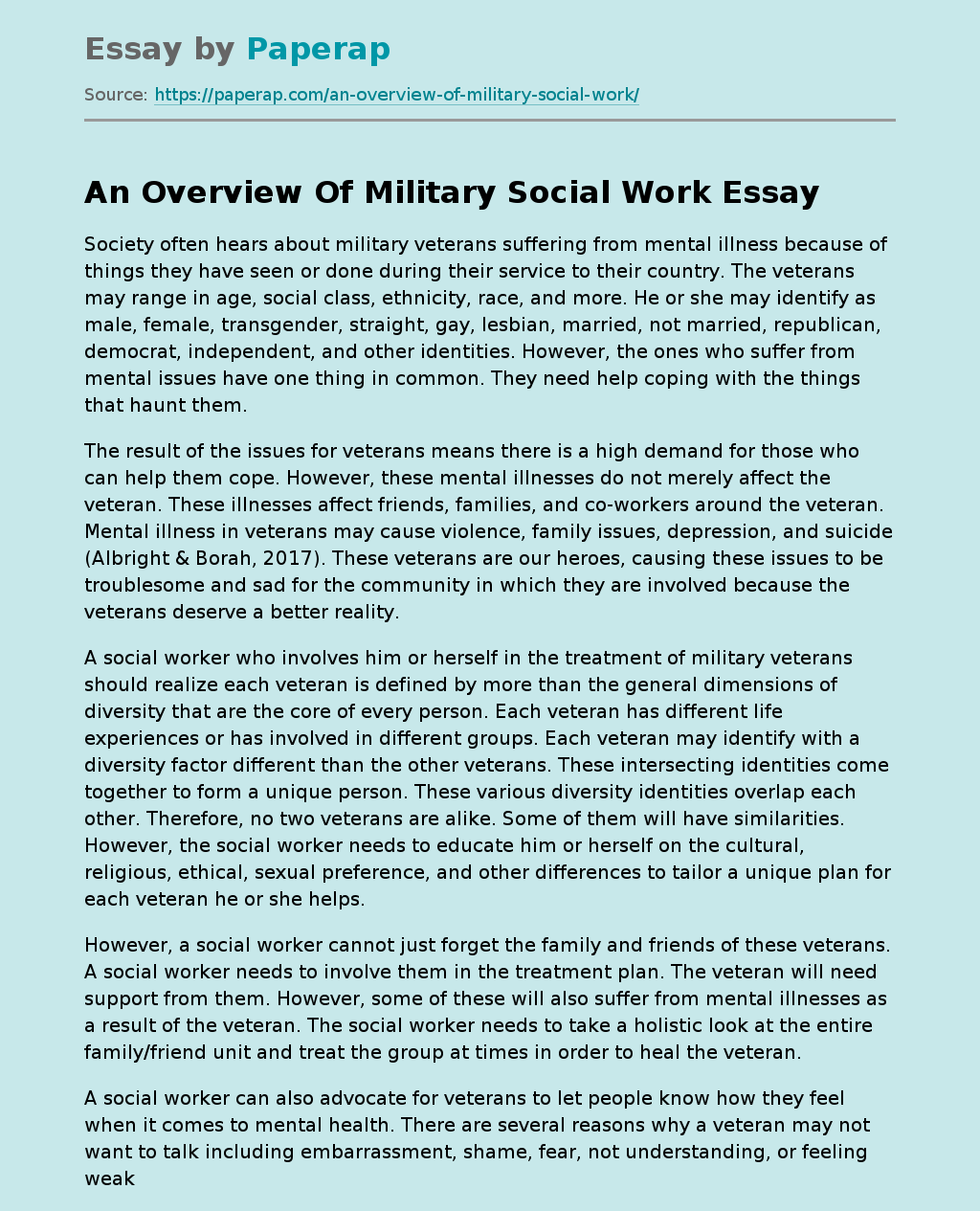An Overview Of Military Social Work
Society often hears about military veterans suffering from mental illness because of things they have seen or done during their service to their country. The veterans may range in age, social class, ethnicity, race, and more. He or she may identify as male, female, transgender, straight, gay, lesbian, married, not married, republican, democrat, independent, and other identities. However, the ones who suffer from mental issues have one thing in common. They need help coping with the things that haunt them.
The result of the issues for veterans means there is a high demand for those who can help them cope.
However, these mental illnesses do not merely affect the veteran. These illnesses affect friends, families, and co-workers around the veteran. Mental illness in veterans may cause violence, family issues, depression, and suicide (Albright & Borah, 2017). These veterans are our heroes, causing these issues to be troublesome and sad for the community in which they are involved because the veterans deserve a better reality.
A social worker who involves him or herself in the treatment of military veterans should realize each veteran is defined by more than the general dimensions of diversity that are the core of every person. Each veteran has different life experiences or has involved in different groups. Each veteran may identify with a diversity factor different than the other veterans. These intersecting identities come together to form a unique person. These various diversity identities overlap each other. Therefore, no two veterans are alike. Some of them will have similarities.
However, the social worker needs to educate him or herself on the cultural, religious, ethical, sexual preference, and other differences to tailor a unique plan for each veteran he or she helps.
However, a social worker cannot just forget the family and friends of these veterans. A social worker needs to involve them in the treatment plan. The veteran will need support from them. However, some of these will also suffer from mental illnesses as a result of the veteran. The social worker needs to take a holistic look at the entire family/friend unit and treat the group at times in order to heal the veteran.
A social worker can also advocate for veterans to let people know how they feel when it comes to mental health. There are several reasons why a veteran may not want to talk including embarrassment, shame, fear, not understanding, or feeling weak (National Veterans Foundation, 2016). The establishment of a local non-profit organization that reaches out to these veterans letting them know it is okay to talk can help. These sessions may be held in the veteran’s home, eliminating the fear or embarrassment he or she may feel. After all, no one outside the veteran’s home needs to know he or she is speaking to someone about his or her issues.
The veterans (whether war heroes or not) are the heroes who keep their respective countries safe. Others often forget these are the unsung heroes while they go about their daily lives. They should not have to suffer in private. A social worker can help to reduce or eliminate the suffering by extending a helping hand. After all, these men and women deserve the best in care.
An Overview Of Military Social Work. (2021, Dec 11). Retrieved from https://paperap.com/an-overview-of-military-social-work/

